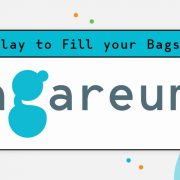Not too long ago we reported on the fact that IBM was working with US dairy farmers in an effort to utilise blockchain technology in an effort to trace food products from shelf right back to their source on the farm.
It seems that IBM is ready to launch their food-tracking blockchain technology along with European supermarket chain Carrefour.
The IBM Food Trust was announced on Monday and this commercial launch will enable both big league players & small to medium enterprises (SME’s) the option of joining the network for a subscription fee that ranges from as little as $100 to that of up to $10 000 a month.
One must note that many SME’s now have more of an incentive to be a part of this rollout, as Carrefour operates within 33 countries with 12 000 stores across those nations. This retail giant will be tracking and tracing their own branded products in countries such as France, Spain & Brazil before branching out into other nations in 2022.
“For us, it’s a matter of sense for the consumer,” Emmanuel Delerm, blockchain program director at Carrefour said. “It’s really this that will push us to say to our producers or partners or suppliers, will they come on the platform? It’s really consumer-orientated; it’s really for them that we are doing this.”
Carrefour is not the only food company with supply chain clout to sign up for IBM’s Food Trust. Other notable names include Nestle, Dole Food, Tyson Foods, Kroger, Unilever and as we reported before, US giant – Walmart.
As we reported before, Walmart has already urged their leafy green produce suppliers last month to integrate with the network by September 2019 following an e.coli outbreak.

IBM’s Vice President Of Blockchain Solutions, Ramesh Gopinath had this to say:
“IBM Food Trust is the first production blockchain at real scale and we are super-excited to finally be making the product available broadly.”
The unique selling point of the IBM Food Trust is the ability to trace products backwards and forwards along the supply chain, explained Gopinath. For example, if oranges are used in orange juice, these oranges can be traced right back to the orchard they came from and in the event of contamination, the trace has the ability to recall all products that made use of said oranges.
“That obviously requires the growers, the suppliers, and the retailers all to be part of the solution, sending in information in a trusted and permissioned fashion and we link it all together,” explained Gopinath.
IBM Top Of The Food Chain?
See what we did there? Moving on, it’s without a doubt that IBM Food Trust is leading the charge in the track & trace food arena. Built on the Hyperledger Fabric blockchain protocol, IBM doesn’t seem to be playing around, but of course, there will more than likely be other companies who will jump on this and make use of Hyperledger when doing so.
Sawtooth is another codebase that seems to be gaining momentum and as we know this was the codebase that was donated to Hyperledger by Intel. Upon inspection of the Sawtooth Supply Chain Github repository, one will find that earlier this year in July, there were about 15 separate code commits from Cargill, another US food behemoth, involving what seems to be a similar track & trace project with the word “fish” popping up. Cargill was questioned on whether we could expect a forthcoming proof of concept from Sawtooth, but the chain declined to comment on the matter.
IBM’s Gopinath seems to be quite upbeat about the arrival of other Fortune 100 companies who are interested in blockchain solutions for their companies, he went as far as to say that interoperability is the ultimate goal.
“All of that, in my view, is good news.” “It’s affirmation that path we started on three plus years ago is the right one. And back when we started out, we have always had interoperability in mind.” explained Gopinath.
“I’d love it if IBM Food Trust was the only platform out there for this, but we are not that naive. If there’s another one that is as good and as mature as Food Trust out there then absolutely we will be happy to do the interop.” explained Gopinath on the subject of data sharing standards such as GS1.
Tomatoes, Chicken & Eggs.
Carrefour’s Emmanuel Delerm revealed that the company had previously worked their own blockchain solution for more than a year before switching over to IBM.
“Being a retailer we knew that IBM was working with Walmart on IBM Food Trust in the U.S. primarily,” he explained.
Carrefour took this as an opportunity to branch out on the range of products they were already working on, like the verification of free-range chicken in the Auvergne region of central France.
“As of today, we have three products in France that since the start of the year we have been delivering to consumers all the information: tomatoes, chicken and eggs, and we added recently the chicken also in Italy,” said Delerm.
Currently, Carrefour Quality lines is live on the blockchain, but the company’s plan is to utilise the IBM Food Trust to include international brands, explained Delerm, including those that are already working with IBM Food Trust such as Nestle & Unilever as well as the exploration of organic produce trace and tracking.
Food Blockchain Adoption at Full Steam Ahead.
Joining the IBM Food Trust next Monday are Topco Associates bringing along with them 15 000 stores, Wakefern with 50 member companies and 344 stores and other suppliers including Smithfield, Dennick Fruit Source and Beefchain.
IBM Food Trust can also be accessed through a module which allows firms to upload data about products to the system via the cloud or through an app which is free to use with a more advanced version of this making use of certificates, organic or Fair Trade credentials.
While Food Trust is IBM’s main foray into blockchain tech, the company also has a shipping & global trade blockchain known as TradeLens in collaboration with Maersk.
TradeLens is yet to take on other companies of the same stature as Maersk. Could this IBM’s dip into the food industry be a simpler task in terms of adoption?
IBM Food Trust has been 18 months in the making already & progress on growing TradeLens up to the same degree is underway:
“IBM Food Trust is making this big announcement; similarly, TradeLens will also have a commercial availability announcement. And at that point, I can guarantee you it will be in the same shape we are in here.” explained Gopinath.
The future of ethical groceries is here. With blockchain technology taking off at a rapid pace in the supply chain of the food industry it seems that that world is on track to begin adopting the technology in a myriad of other sectors. Do you feel this way too? Let us know your thoughts.
Follow CoinBeat on Facebook, Twitter & Telegram
Subscribe to our CoinBeat Newsletter
Submit an article to CoinBeat
View live Marketcap Prices here







Comments